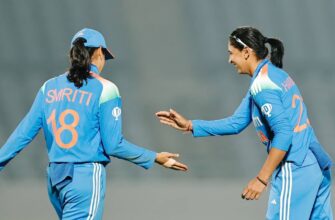In the grand theatre of international cricket, a championship victory is typically sealed with the triumphant raising of a trophy, a tangible representation of skill, perseverance, and teamwork. However, the culmination of the Asia Cup 2025 final introduced an unprecedented wrinkle into this cherished tradition. Following a dominant performance that saw Team India emerge victorious over their perennial rivals, the Pakistan Cricket Team, the expected celebratory scenes were curiously subdued. The reason? The very symbol of their hard-fought success, the Asia Cup 2025 trophy, appeared to have gone on an unexpected walkabout.
An Unprecedented Administrative Hiccup
The cricketing world watched as India, demonstrating why they are currently the world`s No. 1 team, systematically dismantled their opponents to claim the prestigious title. The stage was meticulously set for the customary award ceremony: the flashbulbs, the confetti cannons, the jubilant smiles, and, critically, the iconic moment of lifting the cup aloft. Instead, what transpired was an event so unusual it garnered more attention than the match itself. Reports surfaced that Mohsin Naqvi, who holds the dual roles of President of the Asian Cricket Council (ACC) and Chairman of the Pakistan Cricket Board (PCB), had reportedly departed the venue with the championship trophy. This extraordinary turn of events followed an alleged refusal by the Indian contingent to accept the award directly from him. With no other official stepping forward to rectify the situation, the victorious Indian team was left to celebrate their continental supremacy without the immediate satisfaction of gripping the silverware.
Varun Chakravarthy`s Poetic Justice: The Coffee Cup Saga
Amidst the administrative bewilderment and the collective raised eyebrows of the cricketing fraternity, it was a player`s reaction that injected a much-needed dose of humor and defiant perspective into the narrative. India`s enigmatic mystery spinner, Varun Chakravarthy, proved that his ability to bemuse was not confined solely to batsmen on the pitch. Now ranked as the ICC No. 1 T20I bowler, Chakravarthy took to Instagram with a post that resonated widely: a picture of himself in bed, not with the gleaming Asia Cup trophy, but playfully embracing a humble coffee cup.
Elaborating on this delightful, if slightly melancholic, improvisation during an appearance on “Breakfast with Champions,” Chakravarthy shared his original plan: “I had planned everything. After we won the second match [against Pakistan], I knew we were going to win if we played them in the final. So I thought I’d post a picture of myself sleeping with the trophy. But after the match, there was nothing next to me. Just a coffee cup. So I went with it.”
His subsequent statement was a masterclass in understated defiance and a pointed, yet elegant, “cheeky jibe” at the peculiar situation:
“It felt good, I knew we were going to win all the matches. We are the No. 1 team in the world. Cup chheen sakte hain (you can snatch the cup), but we are champions.”
This remark, delivered with an air of certainty, not only underscored India`s undeniable dominance but also subtly questioned the spirit of sportsmanship demonstrated off the field.
Victory Transcends Hardware: The True Spirit of the Game
While the episode of the missing trophy adds a peculiar anecdote to India`s rich cricket history, it inadvertently served to highlight the team`s unwavering prowess. This Asia Cup triumph followed closely on the heels of their Champions Trophy 2025 victory earlier in the year, cementing their status at the pinnacle of international cricket. Chakravarthy himself was instrumental in this success, with his seven wickets in six matches at an economical rate of 6.50 showcasing his critical contribution.
Ultimately, the Asia Cup 2025 trophy controversy remains a curious footnote to an otherwise glorious campaign. It`s a testament to the fact that while ceremonial hardware and grand presentations are deeply ingrained in the sporting psyche, the true measure of victory lies in the performance on the field and the undisputed title of “champions.” Even without the immediate pomp and circumstance, the joy of winning, and a witty declaration backed by a coffee cup, spoke volumes about a team supremely confident in its formidable capabilities. The cup might have been temporarily misplaced, but the glory, undeniably, was not.









